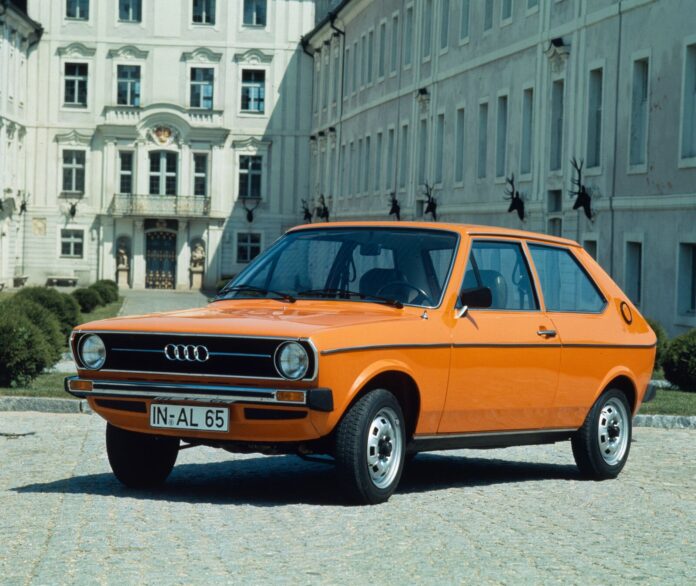Volkswagen luxury brand Audi is storing thousands of automobiles in U.S. ports following President Donald Trump’s imposing of a broad 25% tariff on foreign cars. The halt started on April 2, the date that the new tariffs went into effect, and applies to all Volkswagen’s Audi vehicles entering America from then on.
An Audi spokesperson verified that vehicles that arrived on or after April 2 have not been sent to dealerships. They are sitting in U.S. ports as the company tries to decide what to do next. Shipments have been formally halted “until further notice,” according to an internal memo shared with dealers, first reported by Automotive News.
37,000 Vehicles Already in Stock
Even with the lull, Volkswagen Audi retains approximately 37,000 vehicles in its U.S. inventory. The inventory would be enough to fuel sales for about two months. That said, the long game is uncertain as the whole industry awaits the effects of the tariffs.
Most car manufacturers in the U.S. carry nearly three months of inventory, according to Cox Automotive. This allows businesses some leeway before dealerships start to notice the lack.
Also read : Navarro Dismisses Vietnam’s Zero-Tariff Deal: Find Out The Details
Why Audi Is at Risk
Volkswagen’s Audi is particularly vulnerable to Trump’s tariffs. Its top model in the U.S., the Q5, is manufactured in Mexico. The remaining models are manufactured in Europe or other offshore factories. So nearly every Audi model now has the 25% import tariff slapped on it—enabling them to sell for a whole lot more in the U.S.
This puts other European manufacturers and Audi in a bind, needing to either raise prices for the American consumer or eat the cost themselves. Both are not perfect in an already tight market.
Global Ripples: EU to Meet Over Reaction
The tariff shockwave isn’t just striking automakers. European stock markets fell to a 16-month low after the announcement, with investors concerned over declining demand and a general slowing of the world economy.
On Monday, auto company leaders sat down with European Commission President Ursula von der Leyen to talk about potential responses. The session was part of a race against time to save European industry and avoid further economic repercussions.
India’s Tata Motors Feels the Pressure
The effect is not confined to Europe. India’s Tata Motors shares fell 10% on Monday before paring some losses. Although Tata does not make cars for the U.S. under its own brand, the ripple effects of Trump’s tariff policy are being felt in all auto markets around the world.
Most automakers are now under intense pressure to reassess where they produce their vehicles, how they transport them, and if they can hold on to their current U.S. plants under new cost burdens.
What It Means for U.S. Car Buyers
For US consumers, this might mean more expensive cars and fewer model options in the next few months. Luxury brands such as Audi can become less competitive in the United States, making more space for domestic brands and those with U.S.-based manufacturing facilities.
Other analysts also caution that the temporary halt in deliveries might result in dealer lots of empty cars if the standoff takes longer than anticipated. If more manufacturers emulate Audi, the car market will continue to tighten further.
Also read : Kimbal Musk Speaks Out Against Trump’s Tariff Policies
Conclusion: A Tense Pause Before Big Decisions
Volkswagen’s Audi decision to hold cars in ports is a clear sign that Trump’s auto tariffs are already shaking the industry. While the company has some breathing room thanks to its current stockpile, its next steps could reshape how it operates in one of its biggest markets.
For the time being, the vehicles wait in ports, the dealers wait to hear from them, and the world waits to know who will make the next move.








